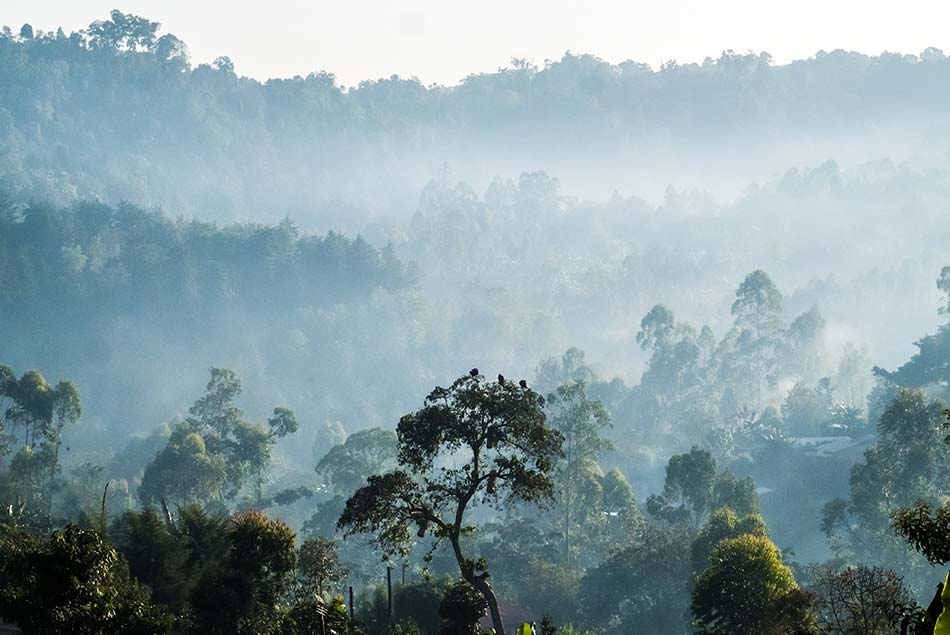Forest countries come together to discuss integrity in voluntary carbon markets
By UNDP’s Climate and Forests Team
Carbon markets can mobilize significant private sector climate finance and raise ambition by lowering climate change mitigation costs. If designed and implemented in a way that ensures high integrity, carbon markets are expected to play an important role on the achievement of the global temperature goals of the Paris Agreement to the United Nations Framework Convention on Climate Change (UNFCCC).
After more than 10 yeas of progressing through REDD+ readiness and implementation, developing countries have learned important lessons that can be built on to advance towards high integrity of forest emission reductions and removals in the context of climate finance including voluntary carbon markets (VCM). Recognizing the need to build on this accumulated experience, the , through the platform, coordinated a session on Achieving Environmental Integrity for Forests in Carbon Markets on April 14, 2021. Over the course of two sessions 85 participants from 32 forest countries in Africa, Asia-Pacific, and Latin America and the Caribbean discussed challenges and opportunities related to the environmental integrity of forest emission reductions and removals in the voluntary carbon market context.
Five expert speakers provided background and context-setting presentations, which fostered a rich discussion among participants. Leticia Guimarães, Senior Global Technical Advisor from UNDP opened by emphasizing the importance of having an agreed definition of environmental integrity and that forest countries must be at the center of these discussions. She mentioned the growing interest from private sector companies to use REDD+ credits to achieve carbon neutrality, which is met with concerns about the use of forest credits to offset fossil fuel emissions. She concluded by explaining that environmental integrity is key for all sectors, but the unique characteristics of the land sector create additional challenges for its effective operationalization. Thelma Krug, former Senior Researcher of the National Institute for Space Research (INPE) in Brazil, summarized the key elements to be considered when greenhouse gas removal or enhancement units are used in carbon markets, be it voluntary or under the UNFCCC, to ensure the avoidance of “hot air” or fictitious units.
The following speakers elaborated on specific topics and initiatives related to voluntary carbon markets. Charlotte Streck, Cofounder and Director of Climate Focus, discussed the legal and institutional matters relevant for environmental integrity. She highlighted the potential of voluntary carbon markets for direct mitigation investments in developing countries. A strategic engagement with voluntary markets would allow countries to maximize investments into priority sectors and activities while ensuring full alignment with national policy priorities. Donna Lee, Independent Climate Change and Land Use Consultant, summarized corporate expectations on the “quality” of carbon credits, noted that companies are increasingly looking for credits with high environmental integrity that contribute to advancing the Sustainable Development Goals (SDGs), and explained that while this market is nascent and many companies are only starting to understand what “quality” means for carbon credits, it is likely that price differentiation will occur in the future. Lastly, Melissa Pinfield, Senior Fellow and Tim Mealey, Senior Partner & Managing Director at Meridian Institute discussed how the Voluntary Carbon Market Integrity Initiative (VCMIi) focuses on demand-side considerations. The VCMIi is facilitating the development of clear guidance and transparency frameworks to ensure that the claims made by corporates are robust and real, when it comes to the emission reductions for which payments are made. This includes when and how corporations should access voluntary carbon markets as part of net-zero transition strategies. They noted that there are several important issues that need to be resolved so that compliance and voluntary carbon markets can co-exist in the future, for example carbon accounting mechanisms such as corresponding adjustments to the nationally determined contributions (NDCs) and the use of registries.
The discussion with countries centered on six key issues: i) the challenge of balancing countries’ first priority to meet NDC targets with demand-side expectations in voluntary carbon markets regarding integrity and other factors; ii) the role of corresponding adjustments and whether they should be applied to voluntary carbon market transactions to avoid double-counting; iii) recognition that voluntary carbon markets and the UNFCCC may have links, but acknowledging that the principles and practices on how it relates to NDCs will likely be defined outside the UNFCCC; iv) the urgent need for robust carbon accounting systems to deliver on the Paris Agreement goals; v) ensuring that the price of carbon reflects the true cost of maintaining natural forests, including incentivizing environmental integrity; and vi) the importance of positioning voluntary carbon markets in the context of broader climate finance by securing long-term sustainability of scaled-up REDD+ funding alongside carbon markets.
Looking ahead, countries signaled their interest and willingness to actively engage in discussions with potential private sector buyers of REDD+ units. There is also significant country interest in tools to assess risks and opportunities of engaging in carbon markets, in the context of countries’ prior experiences, existing systems, and climate policy and finance priorities. Finally, participants acknowledged that there remain unresolved technical matters that warrant further discussion and clarification, such as corresponding adjustments to the NDC and approaches for nesting carbon projects within jurisdictions. Countries expressed their interest in future opportunities for dialogues to tackle such issues.
Progress on ensuring high integrity in voluntary carbon markets is critical in advance of COP26 and it will take ongoing dialogue and collaboration amongst those on both the supply and demand side to make it happen.



